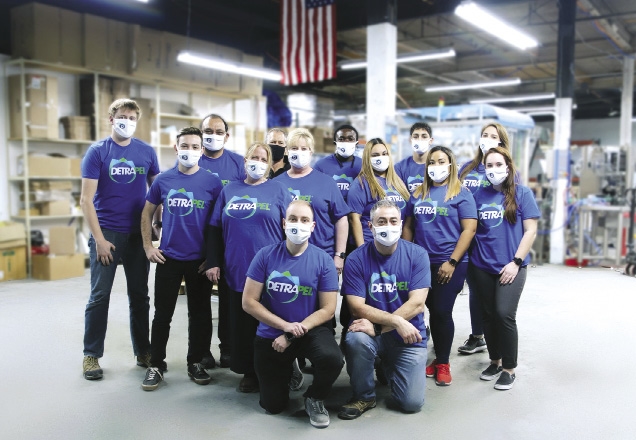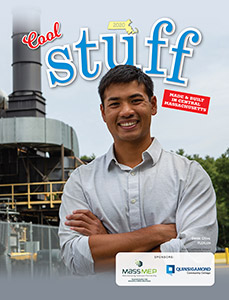At 23, David Zamarin is a serial entrepreneur with a plan to transform an industry.
Zamarin, founder and CEO of Framingham-based DetraPel Inc., has been an entrepreneur for most of his life. Zamarin started selling popsicles in his neighborhood at about 5 years old and later went on to sell watches and headphones at flea markets.
When he got into a prestigious Philadelphia magnet high school, he started thinking about college admissions and looking for a way to distinguish himself.
“We were all in athletics,” he said. “We were all academically gifted. We were all in the same kinds of clubs. I said ‘I’m no different than anybody else. How am I going to stand out?’”
Unsurprisingly, the answer he found was a youth entrepreneurship program. Brainstorming ideas, Zamarin thought about how worried he was about messing up his brand new sneakers. He imagined an invisible coating to protect them. The idea would stick in his mind, but, as a high school freshman, it wasn’t something he had the technical knowledge to move forward with.
Meanwhile, Zamarin began studying chemistry and business, with an eye to his protective coating concept. He found existing fabric protection sprays used potentially toxic fluorochemicals. So his goal became developing a safer, more environmentally friendly alternative.
With money from a shoe-cleaning business, Zamarin paid for research and then began actually manufacturing his product. He fulfilled his original plan to make a good impression on college admissions officers, getting a full scholarship to Babson College in Wellesley.
DetraPel reached the next level of success when it got a slot on the TV show “Shark Tank” in 2018, while Zamarin was still a student at Babson. He demonstrated how spraying a shirt with the product could protect it from spills. The company won a deal with sharks Mark Cuban and Lori Greiner. Although that investment ultimately didn’t work out, the show was a turning point.
“What ended up happening was we got a lot of publicity and our episode was really successful,” Zamarin said.
Soon, automotive companies and carpet and rug makers were inquiring about using the product. That turned out to be a more significant market than direct sales to consumers.
Even in the face of the pandemic, the company has grown dramatically. In fact, seeing the consumer demand for cleaning products, it began putting out a line of disinfectants in addition to its core product. Over the past year, DetraPel has doubled in headcount, to about 15 employees including in-house chemists. It’s tripled its footprint to 40,000 square feet of usable space and quadrupled its manufacturing capacity.
Zamarin said he’s proud the company does almost everything on site. Because its main product requires custom equipment and a very specific manufacturing process, keeping it in house is a matter of maintaining high quality.



